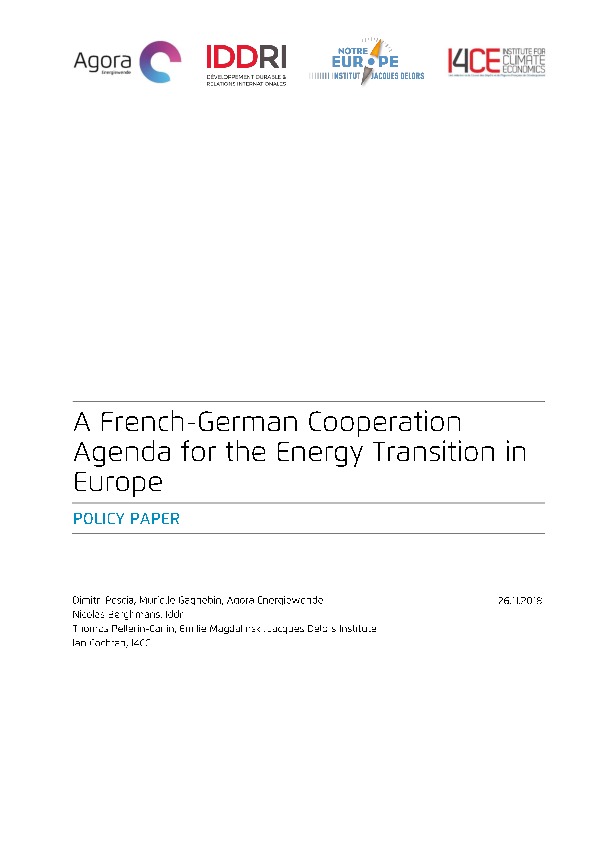A French-German cooperation agenda for the energy transition in Europe
This policy paper, a collaborative effort of four European think tanks, aims to help French, German and EU policy makers address current environmental, economic and societal challenges.
It proposes eight concrete steps where active cooperation between France, Germany and other European countries could make decisive contributions to the Energy Union that benefit all European citizens: on the carbon price, the social aspect of the energy transition, electricity systems transition, the decarbonisation of the industry, the transition of the transport sector, energy and climate governance, its financing as well as innovations to support the transition.
The first part of the paper provides the rationale for following these steps. The second part summarizes our concrete proposals.
